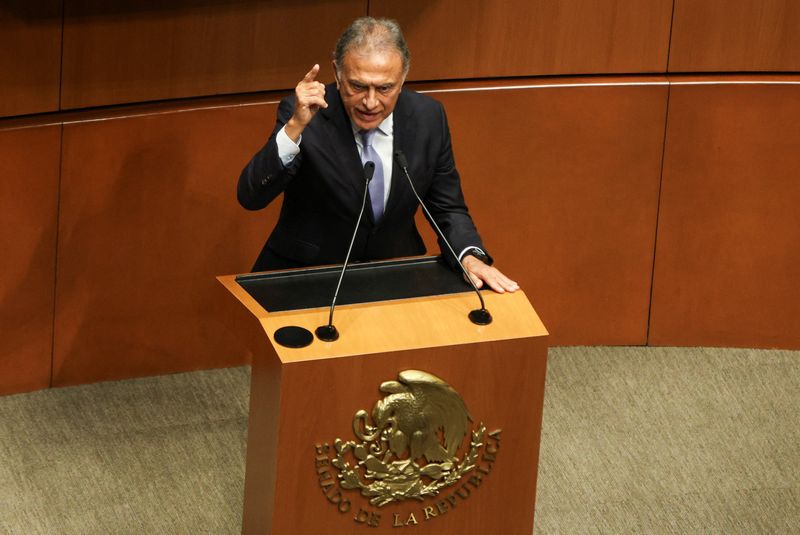By Cassandra Garrison
MEXICO CITY (Reuters) -Mexico’s Senate paused debate of a controversial judicial overhaul on Tuesday after protesters broke into the constructing, including drama to already tense discussions of the reform, which critics concern may undermine the nation’s rule of legislation.
Senate President Jose Gerardo Fernandez stated the session was “suspended” and requested lawmakers to stay calm as demonstrators flooded the higher degree of the chamber, chanting “traitors” in opposition to the reform, which has prompted weeks of widespread protest.
Mexico’s main buying and selling companions, the USA and Canada, have warned the modifications may undermine the commerce pact of the three international locations, the USMCA, and negatively impression funding.
The spine of the constitutional reform, proposed by outgoing President Andres Manuel Lopez Obrador, requires the election by standard vote of greater than 6,500 judges and magistrates, together with the Supreme Court docket.
Lopez Obrador and President-elect Claudia Sheinbaum have vigorously defended the reform as important for holding judges accountable and lowering corruption.
Critics have attacked it as a blatant doubling-down of energy by ruling occasion Morena.
As senators debated the reform, opposition lawmakers accused the ruling bloc of underhanded ways to safe the mandatory two-thirds majority.
The vote, which can seemingly go into the early hours of Wednesday morning, is predicted to be tight, with the ruling coalition formally one senator quick.
However hypothesis is mounting that opposition PAN Senator Miguel Angel Yunes has switched allegiance to the ruling bloc over the reform.

Whereas the Senate was in session, Yunes requested medical go away in a letter learn by the secretary of the Senate’s board of administrators. His father, performing as his substitute, didn’t say which approach he would vote however was booed by PAN lawmakers who anticipate him to favor the reform.
The reform additionally proposes lowering the variety of Supreme Court docket justices to 9 from 11, shortening their phrases to 12 years and reducing required work expertise from 10 to 5 years.




